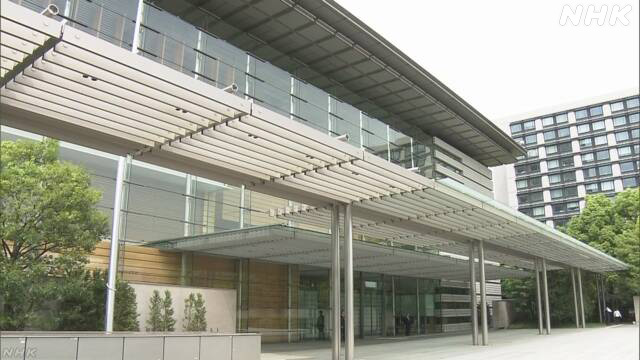 https://www3.nhk.or.jp/news/html/20220711/k10013711441000.html
https://www3.nhk.or.jp/news/html/20220711/k10013711441000.html
Kishida cabinet the challenges of economic and financial management
After the
House of Councilors election, the Kishida Cabinet intends to proceed with the
overall concept of “new capitalism” and the concrete measures of “the bold
policy” decided by the Cabinet in June.
On the other
hand, the urgent issue is how to deal with the soaring prices that are directly
hitting people’s lives and the tight supply and demand of electricity.
New Form
of Capitalism-Strong Policy
Last month,
the government approved the overall concept and implementation plan of “New
Form of Capitalism” set by Prime Minister Kishida.
Among these,
Ø Further wage increases focusing on
investment in people, reemployment support for 1 million people.
Ø Reform of “NISA” and “iDeCo” with the
aim of “doubling asset income” incorporated a policy.
At the same
time, the Cabinet decided on the “Honebuto no Hoshi” policy, which includes
issues such as,
Ø Strengthening the medical system to
prepare for the spread of the new corona infection.
Ø Support measures for the
child-rearing generation such as an increase in the lump-sum payment for
childbirth and child birth.
Ø Drastic strengthening of defense
capabilities.
The Kishida
Cabinet believes that such a policy has gained credibility by winning the Upper
House election, and intends to proceed with concrete measure in the future.
Energy/electricity
supply and demand problem
On the other
hand, they also asked to deal with urgent issues.
One of them Is
the problem of energy and electricity supply and demand.
In March,
the temperature dropped while multiple power plants were shut down due to
earthquake, and the demand for electricity such as heating increased.
Within the jurisdiction
of TEPCO, the use of air conditioners increased significantly.
The government
has requested power saving nationwide for the first time in seven years, saying
that the power supply and demand situation will continue to be severe this
summer, and is calling for cooperation in power saving within a reasonable
range from the 1st of this
month to the 3rd month.
However, the
power supply and demand this winter is expected to be extremely harsh, with the
supply capacity and reserve ratio for the peak power demand within the jurisdiction
of eight companies such as TEPCO being below the minimum of 3% required for
stable supply.
Under these
circumstances, securing LNG = liquefied natural gas, which is the fuel for
power generation, has emerged as an important issue.
About 9% of
the LNG used in Japan is from Russia, and most of it is "Sakhalin 2"
in the Far East, which is funded by a Japanese trading company.
However, as
Japan in line with the West and tightening sanctions on Russia over the
situation in Ukraine, President Putin issued a presidential decree on the 30th
of last month ordering the business entity of "Sakhalin 2" to be
changed to a newly established Russian company.
The Japanese
government is wary that LNG imports will not stop immediately due to this, but
the Russian side is shaking with energy, and will work on LNG producing
countries to secure other suppliers. I have decided.
However, as
European countries are forced to break away from Russian fossil fuels and are
working to secure LNG, it is an important issue for the Japanese government to
secure a stable supply of electricity through stable fuel procurement.
Price Measures
Due to the
prolonged situation in Ukraine and the rapid depreciation of the yen, prices of
energy and foodstuffs have risen, hitting people's lives directly.
In May, the
consumer price index, excluding fresh foods, which are subject to large
fluctuations due to weather conditions, exceeded the same month last year by
2.1%, surpassing 2% for the second straight month.
In
particular,
Ø Electricity bills were 18.6%,
Ø Gasoline bills were 13.1%, and
Ø Cooking oil, which uses a lot of
imported raw materials, rose significantly to 36.2%.
In addition
to the measures currently being taken, such as curbing the prices of gasoline
and other fuels, the government plans to take measures to raise the prices of
agricultural products and substantially reduce the burden of electricity costs.
However, in
recent years, there have been a series of announcements of price increases for
groceries and daily necessities.
If the
impact on people's lives becomes even more widespread, it could put a strain on
the economic recovery from the new Corona, and countermeasures are urgently
needed.
Fiscal
Policy
While the
economy has been hit hard by the new corona, the government has supported
livelihoods and the economy with huge fiscal stimulus.
Under these
circumstances, the so-called “national debt”, which includes government bonds
and borrowings, reached a record high of 1241 trillion yen as of the end of
March.
There is an
opinion from the ruling party that the government's goal of "turning the
primary balance of the national and local governments into the black by
2025" should be postponed, but Prime Minister Kishida said. It emphasizes
the stance of aiming for fiscal consolidation.
However, as
the infection of the new coronavirus spreads again and the global economy is
declining due to soaring global prices.
Source: https://www3.nhk.or.jp/news/html/20220711/k10013711441000.html
 English
English Japan
Japan
